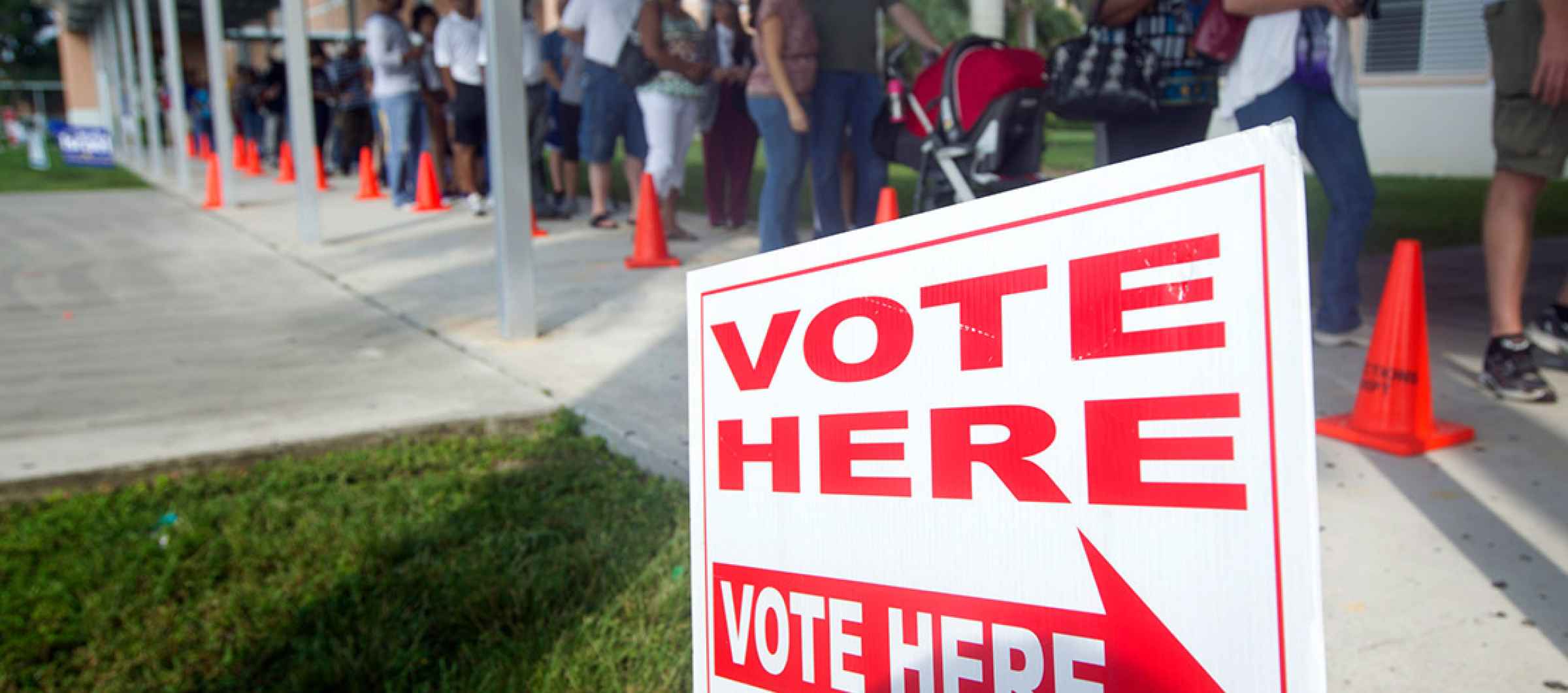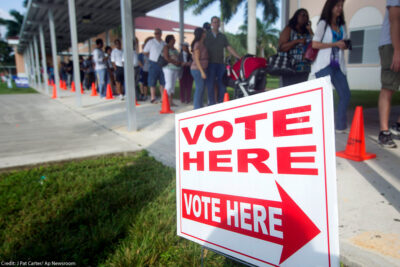
Supporting Defendants in Unlawful Florida Prosecutions of Returning Citizens (Amicus)
What's at Stake
Florida has arrested and prosecuted many returning citizens—persons with felony convictions who are no longer incarcerated—for registering and voting while ineligible. These prosecutions have occurred amid widespread confusion about voting rights restoration in Florida and have been initiated by an Office of Statewide Prosecutor (“OSP”) that has no authority to bring these criminal actions.
Summary
The ACLU, ACLU of Florida, and coalition partners have filed amicus briefs on behalf of several returning citizens in Florida who are being prosecuted for purportedly registering and voting while ineligible.
In 2018, Florida passed Amendment 4, which ended permanent felony disenfranchisement for many returning citizens in the state. Amendment 4 constituted one of the largest expansions of voting rights in modern U.S. history. Months later, however, the Florida legislature dramatically curtailed the rights-restoration guarantees of Amendment 4. Since then, there has been widespread confusion about eligibility for rights restoration in Florida, and the State has largely refused to inform returning citizens about their voter eligibility.
In 2022, just before a major election, Florida Governor Ron DeSantis announced that the OSP had arrested 19 returning citizens for allegedly voting or registering to vote while ineligible. 15 of these 19 individuals are Black. The cases received national attention after police bodycam videos showed bewildered and confused returning citizens being arrested at their homes, completely unaware that they had done anything wrong.
The ACLU and our coalition partners have filed amicus briefs on behalf of criminal defendants in several of these prosecutions. In one set of briefs, we argue that OSP lacks authority to prosecute these returning citizens, because of its limited jurisdictional authority. These briefs note that OSP was formed with an extremely limited authority to pursue “long-term, complex, organized crime cases.” But these voter fraud prosecutions are just the opposite—isolated incidents of voter confusion prompted by the State’s refusal to provide clear rules about rights restoration and voter eligibility, and which have now prompted a chilling effect even among eligible voters who fear prosecution.
In the second set of briefs, we argue that the mens rea requirement for criminal liability for these voting crimes—which requires both knowledge and intent—is an extremely high bar for the State to establish, particularly in voting cases. We further argue that such a willfulness standard is especially difficult to establish here, where the State has confused and, in many cases, actively misled returning citizens about their voter eligibility.
Legal Documents
-
12/14/2023
Amicus Brief in Support of Terry Hubbard -
11/16/2023
Amicus Brief in Support of John Boyd Rivers -
10/26/2023
Amicus Brief in Support of Peter Washington, Jr. -
10/24/2023
Amicus Brief in Support of Robert Lee Wood -
09/27/2023
Amicus Brief in Support of Ronald Lee Miller
Date Filed: 12/14/2023
Affiliate: Florida
Date Filed: 11/16/2023
Affiliate: Florida
Date Filed: 10/26/2023
Affiliate: Florida
Date Filed: 10/24/2023
Affiliate: Florida
Date Filed: 09/27/2023
Affiliate: Florida
